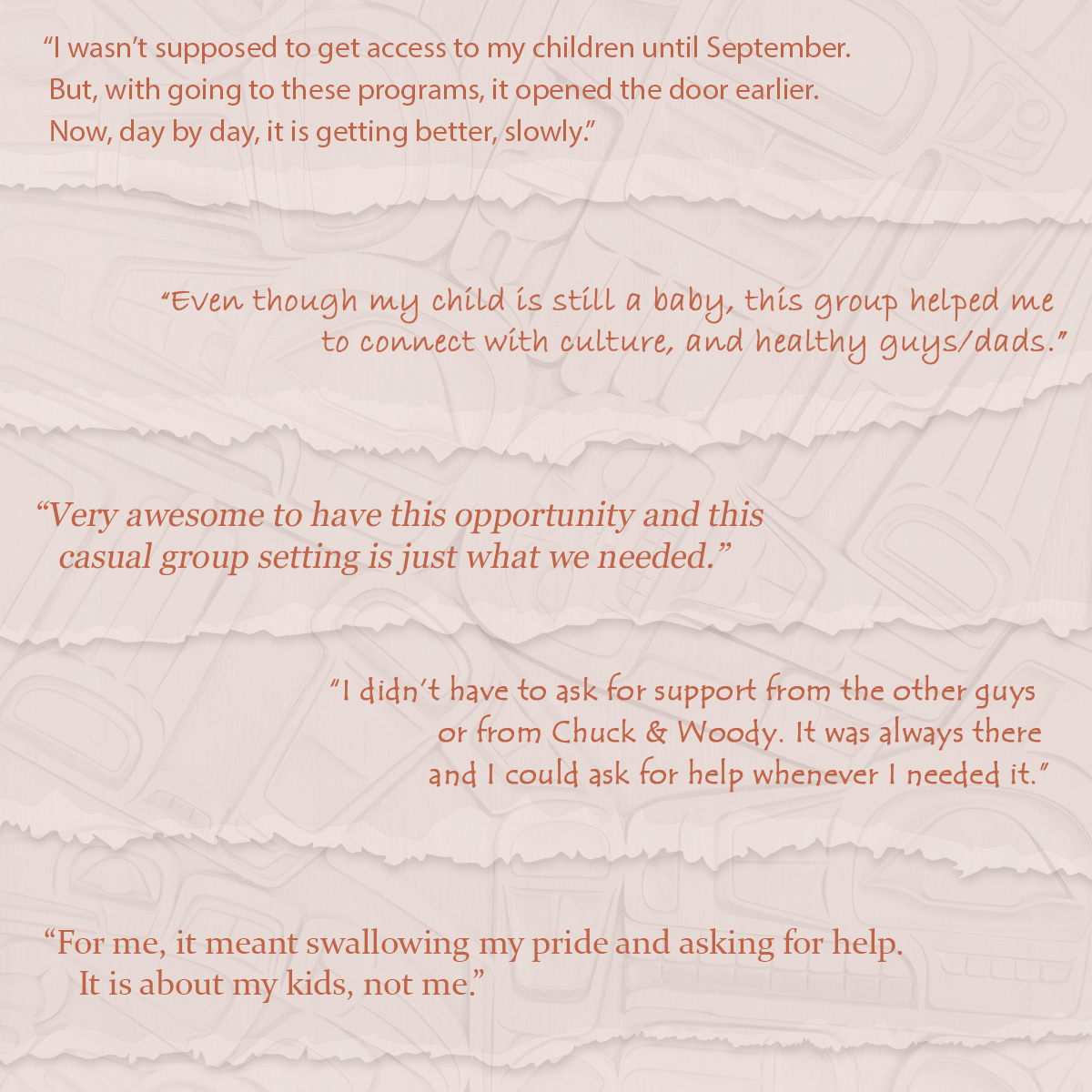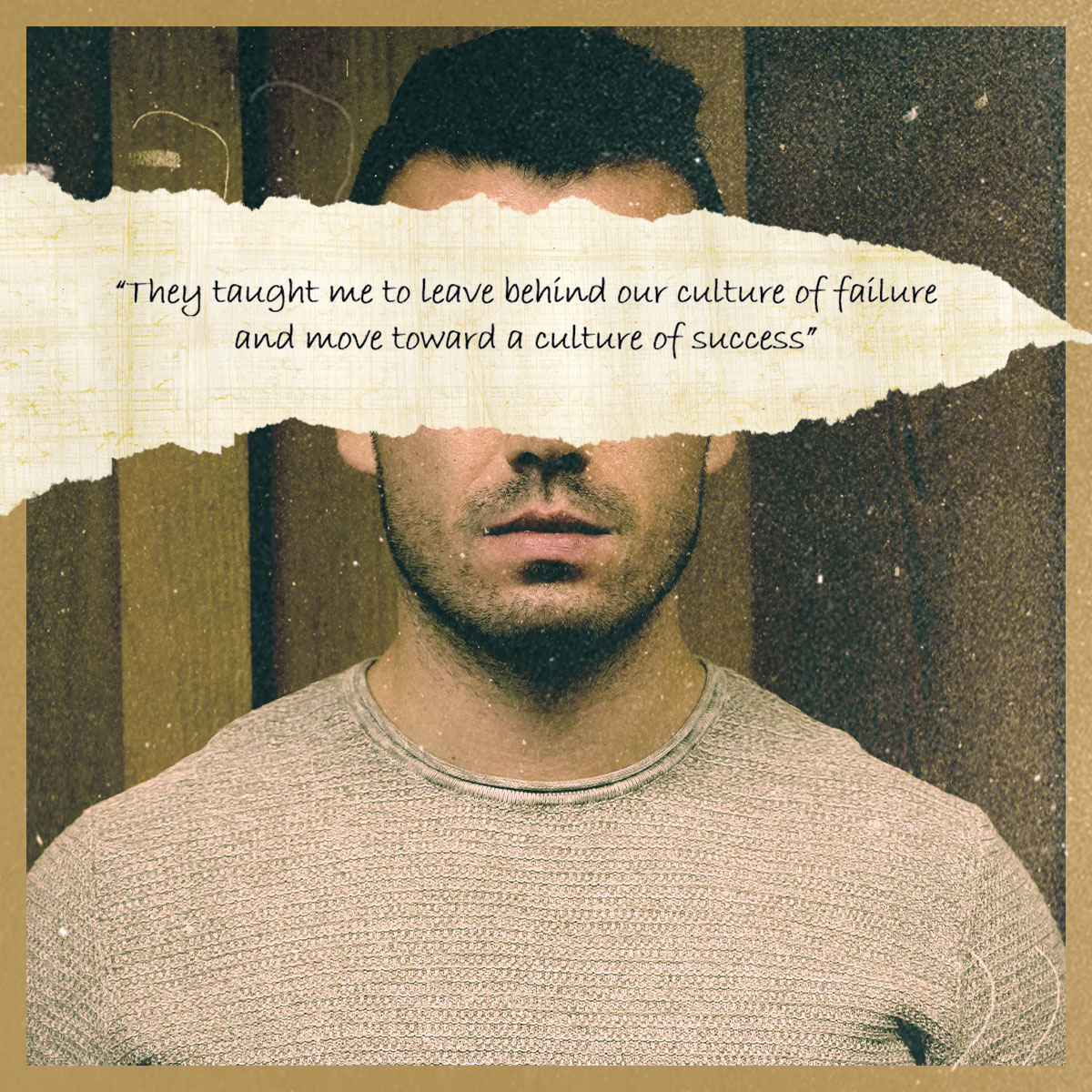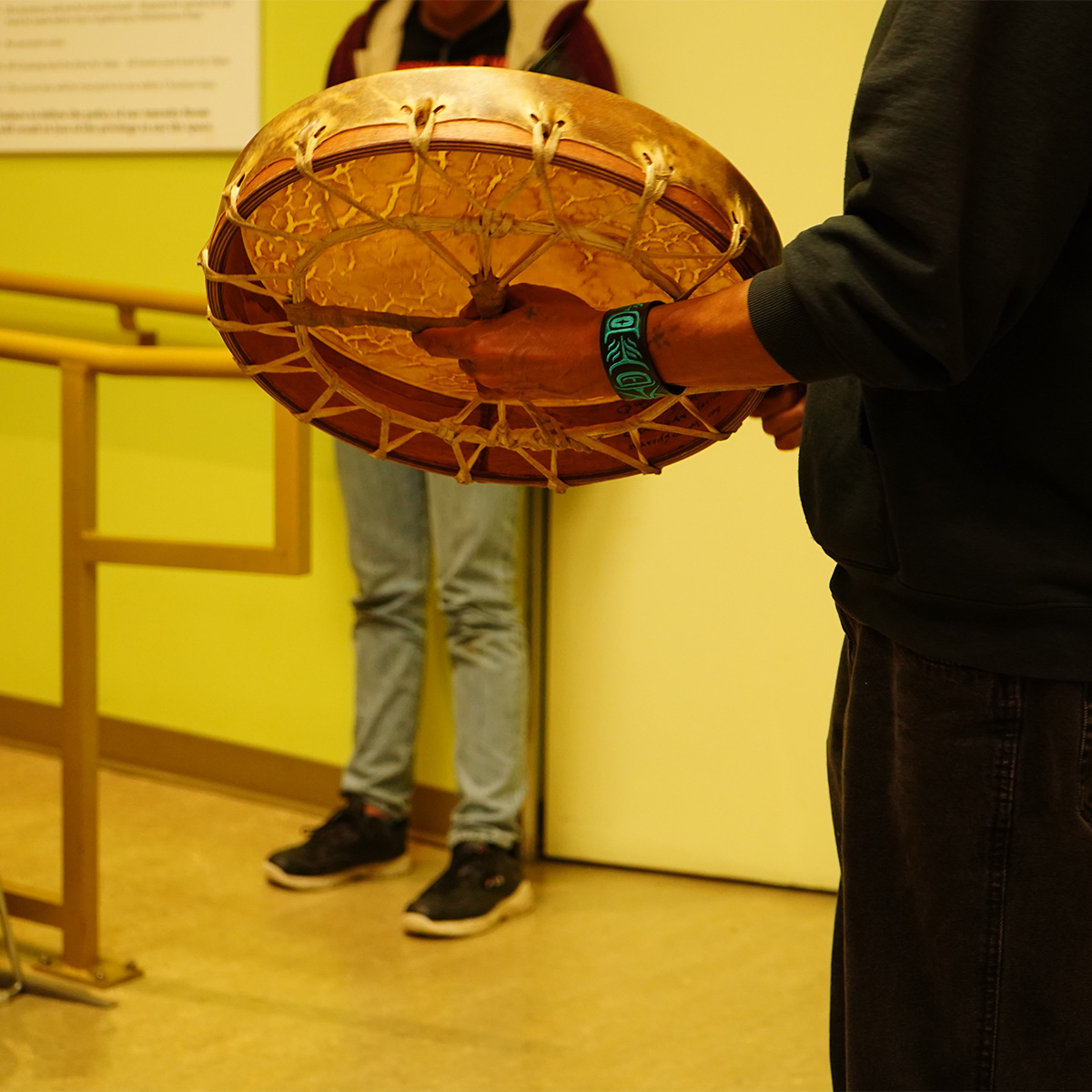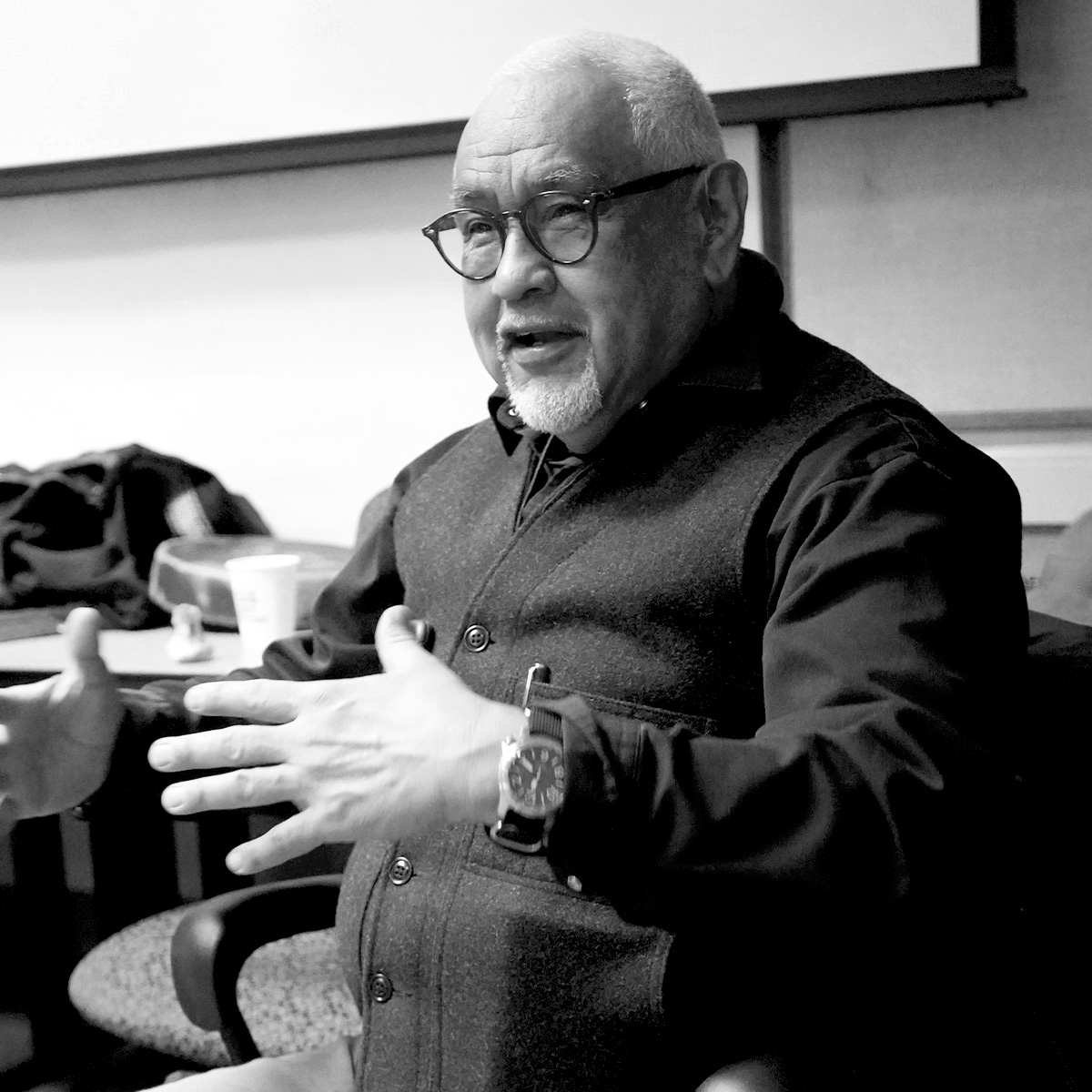The Strengthening Fathers group is designed to promote peer support to fathers who are experiencing situations that may place children at risk.
It’s February 6, 2017 and guest speaker, Hector Hill, just finished the Medicine Wheel teachings to the group, one father trembles with emotion, “I should have asked about my parents, how they taught me. My dad said “wii oly ni’a” – I love you, [to him] at the age of 26 for the first time.”
The Strengthening Fathers group is culturally-based and utilizes Indigenous traditions, cultural practices, and values. It focuses on strengths and supporting one another with trust, honesty, cooperation and commitment to improve the father-child interaction and communication. The group provides a mutually respectful environment through awareness and sensitivity of a person’s cultural, spiritual and economic background. It reflects the common goal of strengthening families to prevent children and youth from coming into care. It has proven to be one of the most powerful programs for family change because it involves not just the fathers, but also their children. It is unique among other parenting and family programs because it was developed specifically for children of substance using fathers.
There is very little support for, or even recognition, of the existence of Indigenous fathers.
“There are a lot of programs for women, for mothers – it’s a mother-centric system. There is very little support for, or even recognition, of the existence of Indigenous fathers,” is a sentiment expressed all too often from the fathers of the group. They feel forgotten and discriminated against by systems because they don’t receive the same level of support that mothers do. Colonization has shattered the historical role of males and culture, which has resulted in men becoming powerless and vulnerable. A video that is shared with the group, called Canada’s Blind Spot, discusses this very critical issue. The fathers learn how the cultural changes resulted from the loss of fishing, hunting and other cultural and economic factors has had one of the greatest impacts on the role of the Indigenous man. Strengthening Fathers emphasizes Indigenous values and techniques in the sharing between father and child, and to enhance these through a supportive and culturally relevant approach that introduce principles of effectiveness.


The program is 11-weeks long and meets once per week with fathers and their children. The program has one coordinator and the group’s discussions are lead by two Elders, Woody and Chuck. A father is typically referred to Strengthening Fathers by a social worker where the child may be under a Temporary Custody Order or Continuing Custody Order of VACFSS. The significance in the father and child participating together is that the father often does not have custody of the child, so the program creates opportunity for them to build their relationship. Each meeting starts with a meal together, then the children (ages 5 and under) break off in their own play group.
Every week, the fathers watch a video together and the video is the opening statement of what that week’s discussion will be about. Each video touches on a different topic, such as family violence, discipline, identity or Family Group Decision Making. The program also teaches fathers how to navigate the child welfare system, their legal rights and how to self-advocate. Completing a program such as Strengthening Fathers helps the system recognize that the father is moving forward and responding to the concerns in a positive way so that they can be reunited with their children.
Strengthening Fathers also provides important advocacy for the fathers in their child protection case.
But, this not just a program where fathers come together, watch videos and have discussions – Strengthening Fathers also provides important advocacy for the fathers. Unlike social workers, these facilitators have the unique advantage of observing how the father interacts with the child and the growth that takes place as the father engages in the group each week. The facilitators witness the unique nuances that, unfortunately, go unrecognized by the system. These fathers are busy and work long hours at physically demanding jobs. The fact that they want to explore more options in this area with their family is the outcome all of us hope for. All discussions in the group are confidential, but general feedback on breakthroughs is shared to help build support for the father in the child protection case. Strengthening Fathers is also involved with rescindments.
There is no like program in Vancouver and what makes Strengthening Fathers exceptional is that it has had the same three facilitators/coordinator from its inception 8 years ago. It’s gained reputation in the community so much so that it even receives referrals from probation and correctional institutions (note, their children must be already connected with VACFSS). Despite the historical adversity experienced by Indigenous fathers and the continuing systemic barriers they experience, their healing journeys are a testament of their inherent resilience and we are honoured to walk alongside them.












